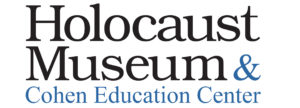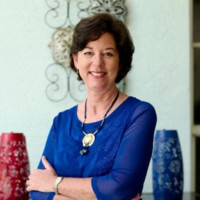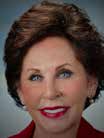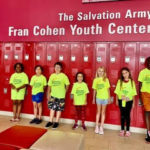Telling the Stories of Upstanders
Education is the core of our work at the Holocaust Museum & Cohen Education Center.
 So what are we teaching, you may ask? History? Yes, certainly. We teach students and adults about the important facts about the Holocaust. One of our founders, Lorie Mayer, a Holocaust Survivor, always emphasized that there is no need to embellish a story about the Holocaust to make it seem more dramatic or horrific – it was horrific.
So what are we teaching, you may ask? History? Yes, certainly. We teach students and adults about the important facts about the Holocaust. One of our founders, Lorie Mayer, a Holocaust Survivor, always emphasized that there is no need to embellish a story about the Holocaust to make it seem more dramatic or horrific – it was horrific.
We explain when and how it happened, who suffered and died, who were the perpetrators, the bystanders, and the upstanders. “Why did it happen?” is a question students often ask. “Why, how could humans do this to other human beings?” Part of the answer is that too many bystanders let it happen. Not enough people stood up against this evil. But importantly, some did. Some people stood up against tremendous evil, often at great risk to themselves and their families, in order to save lives, do the right thing, and not be a bystander.
Who were these people who stood up against this evil? Were these heroes special, or ordinary people like you and me? These heroes, or Upstanders, came from all walks of life. Farmers, social workers, college students, journalists, and diplomats. We tell the stories of these helpers, heroes and heroines, Survivors and Liberators so that people can understand the power and importance of their own actions today. Our local Survivors tell the stories of the Upstanders who helped them and their families survive or escape the Holocaust. Diplomats like Col. Castellanos who issued citizenship papers to Rob’s family, families in the south of France who took in Renee and Rosette as their own children, and strangers who offered food and shelter to young Abe who escaped from several concentration camps.
Education about the Holocaust is education about the best and the worst of human behavior.
When you walk through the Holocaust Museum or watch a movie about the Holocaust or other genocide, you may think it yourself, “what would I have done?” But the more important question to ask yourself is“what am I doing today to be an Upstander and not a Bystander?”
During this pandemic there are many opportunities to help others and be Upstanders. Fear can often result in people striking out and looking for a scapegoat. Being calm and responsible rather than blaming others is one way to be an Upstander. Volunteer, help a neighbor, and be a helper wherever and whenever possible.
We look forward to seeing you at the Museum or on one of our virtual programs. Please visit HMCEC.org or call 239-263-9200 for more information.
 Susan L. Suarez, MBA, CFRE President and CEO
Susan L. Suarez, MBA, CFRE President and CEO



Leave a Reply
Want to join the discussion?Feel free to contribute!